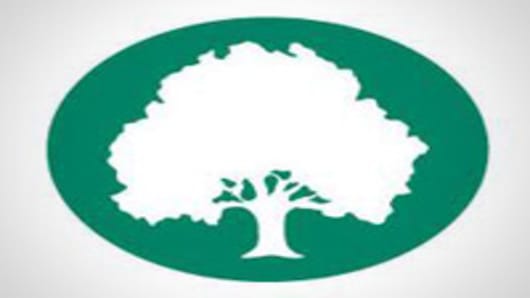“At the end of the day, you are better off being invested in one of those fund [managers] than you are investing in the units of these publicly traded firms,” Warren concludes.
Oaktree’s IPO filing shows that while its closed-end funds have posted an internal rate of return of nearly 20 percent on over $50 billion in invested capital in 2011, overall earnings available to prospective shareholders — called distributable earnings — fell over 20 percent to $488.5 million from $635 million in 2010.
Still, investors have reason to consider tapping the proprietary investment style of firms like Oaktree, which is diminishing as a component of bank earnings as new regulations like the Dodd-Frank Act kick in. There isn't a single analyst sell rating among the five publicly traded alternative-investment management firms. That’s because analysts argue that stock investors don’t fully appreciated what they are getting with shares in private-equity firms.
“Across our capital markets coverage universe, the shares of the alternative asset managers — Apollo, Blackstone, and KKR — are among the most volatile of all firms that we cover. Yet from our perspective, there are unique features of these business models that make them among the most defensive and stable franchises across our coverage,” wrote Credit Suisse analyst Howard Chen in a February note assessing how the sector should be valued.
While firms’ preferred earnings measure is called “economic net income,” which represents management fee earnings and quarterly marks to unrealized investments — less performance attributable to direct fund investors, taxes, and compensation expense — Chen argues that investors should focus on the cash that firms earn for shareholders via fees and their interest in realized investment gains. It is these cash earnings that helps give firms like KKR and Blackstone above 5 percent dividend yields and that can drive share prices higher. IPO Desktop President Francis Gaskins told TheStreet that Oaktree’s dividend yield could exceed 7 percent based on its filings.
Over the next three years, Chen expects Apollo, Blackstone, and KKR to increase their fee earning assets under management, with 2012 being a watershed year of 20 percent-plus growth. Meanwhile, performance fees on assets under management are expected to rise to nearly 3 percent from sub-2 percent levels by 2014, adding billions in revenue for the three firms. Chen highlights Apollo as benefiting the most from growing management and performance fee earnings.
“Despite the potential for accelerating cash flows in 2012 and 2013, in our view, valuations of many alternative manager stocks remain inexpensive and not reflective of their potential earnings power,” notes KBW analyst Robert Lee in a December assessment of the sector. Lee also notes that long-term commitments to funds, and the pullback of investment banks from private-equity and proprietary funds, provides these managers with a consistent set of cash-based earnings.
While firms’ net income may swing wildly depending on market activity, similar to investment banks, cash earnings may be more stable and reflective of financial sector above average dividend yields. The Blackstone Group and KKR are Lee’s top picks within the sector.
Investors still unclear on how to pick winning alternative-asset manager stock may also look at whether insiders are selling stakes in IPOs.
In Blackstone’s blockbuster 2007 IPO that has since underperformed significantly, the company's co-founders Peter Peterson and Stephen Schwarzman both sold significant stakes. Meanwhile, KKR’s co-founders Henry Kravis and George Roberts haven’t sold their shares, as the company’s stock has performed strongly since a July 2010 listing.
Oaktree Capital Management was co-founded in 1995 by Howard Marks and six executives from the money manager TCW Group. Marks, who holds about one-sixth of the company’s shares, and his partners, earn money on investments in distressed debt, real estate, convertible bonds, and direct company ownership, mirroring the strategies used by some of the world’s largest hedge funds.
In Oaktree’s share offering, management were large share sellers as the company's chairman Marks and president Bruce Karsh cashed out roughly 40 percent of the IPO proceeds, according to a March regulatory filing. Other existing shareholders such as hedge funds Farallon Capital Management, Maverick Capital, JMG Capital Partners, and Scroggin Capital Management were expected to sell an additional 1 million shares, according Bloomberg data gleaned from Securities and Exchange Commission filings.
The Carlyle Group is soon to be world’s second largest publicly traded private-equity firm when it sells a 10 percent stake in a May IPO, according to Bloomberg. In that filing, which is expected to fetch a valuation of $7.5 billion to $8 billion, Carlyle's co-founders won’t sell their shares.
For more on financial IPOs, see BATS Global Markets share crash. See five stocks that could be trampled by a share overhang, for more on private-equity backed IPOs.
Additional News: Oaktree Capital Shares Open 5% Below IPO Price
Additional Views: IPOs Disappoint—What Does It Mean?
_____________________________
CNBC Data Pages:
______________________________
Disclosures:
TheStreet’s editorial policy prohibits staff editors, reporters, and analysts from holding positions in any individual stocks.
Disclaimer


